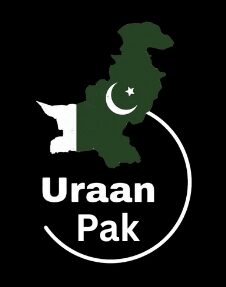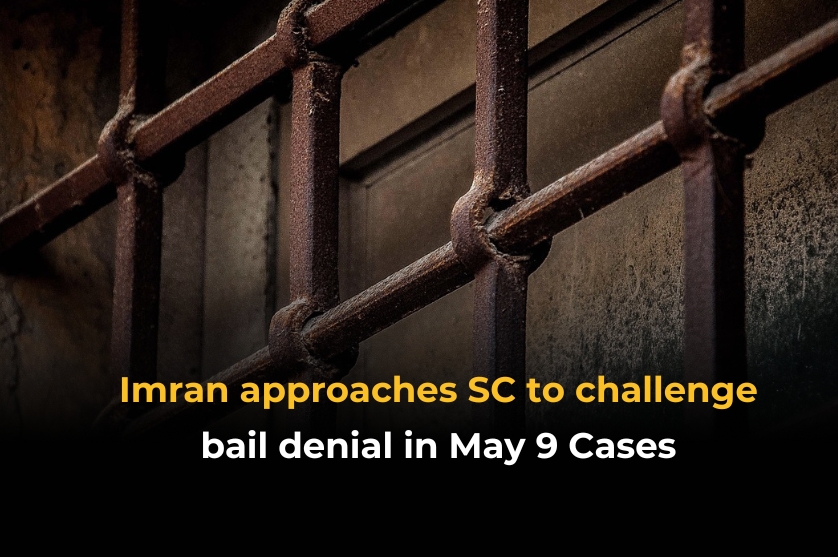Supreme Court Appeal: Pleading Back Bail Rejection
The LHC rejected Imran Khan’s post-arrest bail in eight cases on May 9, the most prominent being the Lahore corps commander residence attack, on June 24. This came after an earlier rejection by the Anti-Terrorism Court.
Now, with senior attorney Salman Safdar taking charge, the legal team of the former PM has filed a potent petition in the Supreme Court, contending that Khan could never be implicated — because he was already in the custody of NAB when the incidents occurred.
The appeal asserts:
- No tangible evidence connects Imran Khan to the violence.
- FIRs registered are generic and politically motivated.
- The whole episode smells of a nefarious design to prolong imprisonment.
Political Victimisation or Lawful Prosecution?
The petition maintains that Khan has been victimized by an “unprecedented political campaign” since his ouster from power.
Important charges are:
- False implication on vague and unsubstantiated accusations.
- Tainted evidence by police, particularly supplementary statements produced long after the fact.
- Inordinate delay in arresting Khan for five months subsequent to his bail being rejected by ATC — even though his precise whereabouts were known.
Such accusations raise grave doubts over the honesty of the prosecution. The petition cites Section 497(2) CrPC, stating that Khan is eligible for bail in non-bailable offenses because there is no reliable evidence.
Aleema Khan’s Chilling Allegations: Legal Team Denied Access
On the same date as the appeal filing, Imran’s sister Aleema Khan announced that the jail administration refused lawyers access to Adiala Jail to prepare the Toshakhana case.
“We were outside the jail but not permitted to go inside,” Aleema declared, alleging disregard for judicial orders.
This not only points towards administrative interference but also fires up the political suppression story — yet another twist in the Imran Khan bail rejection case.
Contradictions in the State’s Narrative
The state’s narrative of the events has shifted consistently:
- Initial FIRs were sketchy, being bereft of details.
- Subsequent versions included fresh police statements.
These changing tales undermine the case.
If the police knew of a possible conspiracy on May 7, as alleged, why did they take no action to stop it?
This rational fallacy further aids the argument of malafide intent, the hub of the petition.
Supreme Court’s Role: Last Hope or Legal Battleground
The Supreme Court is now the last battlefield for this legal fight. The country waits as the judiciary is requested to transcend political pressure and give justice on merit.
There are those who support that this is an open-and-shut case of rights denial. Opponents, however, urge the law to take its course. In either case, the decision on this appeal could have drastic effects on:
- Legal proceedings against political leaders in the future
- The credibility of Pakistan’s judicial system
- Public trust in state institutions
What Happens Next?
With the Supreme Court petition now filed, the coming weeks are crucial. If granted bail, it may:
- Revive PTI’s political energy
- Strengthen Khan’s stance of being wrongfully accused
- Create tensions between judiciary and executive authorities
If denied, the political and legal turmoil surrounding Imran Khan bail denial may deepen further.
Conclusion: A Legal Case or Political Chess Game?
This is not merely about Imran Khan or even about May 9. It is about the intersection of power, justice, and democracy in Pakistan. The Supreme Court ruling may be the turning point in the way political dissent is treated — or repressed — in the country.
As the appeal is made, one thing is certain: the case of Imran Khan bail rejection is not about legal technicalities — it’s a struggle for the heart of Pakistan’s democracy.
FAQs
What happened on May 9th in Pakistan?
Seven weeks later, on May 9, 2023, Khan was arrested — immediately triggering widespread, violent unrest across Pakistan, with tens of thousands of Khan’s supporters participating in riots, demonstrations, vandalism, and clashes with police officers and soldiers.
How many people died on 9 May?
| May 9 Riots | |
|---|---|
| Imran Khan Rana Sanaullah Mohsin Naqvi Azam Khan Murad Ali Shah Abdul Quddus Bizenjo | |
| Casualties | |
| Death(s) | 8-12 |
| Arrested | Over 3,200 |
According to Google





